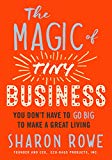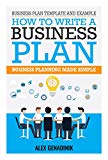Terence S. Phillips,
|
Back to Blog
The Coronavirus and the Global Economy2/29/2020 At the end of February 2020, there were more than 84,000 confirmed cases of COVID-19 — the official name of the coronavirus first reported in Wuhan, China — including over 2,800 deaths. Most were in China, primarily in Wuhan and the surrounding Hubei province. But about 5,200 cases, including 86 deaths, had been reported in nearly 60 other countries. While the pace of new cases slowed in China, a surge in South Korea, Italy, and Iran caused concern that the virus may be difficult to contain.1 Cities Under Lockdown
By mid-February, at least 150 million people in China were under restrictions affecting when they could leave their homes, and more than 760 million — about 10% of the world’s population — lived in communities under some form of travel restriction.2 Most global airlines cancelled service to and from China, disrupting tourism and business travel.3 The Chinese government enacted restrictions around the time of the Lunar New Year celebration, during which many businesses were closed, lessening the immediate impact. However, as factories and other businesses remained closed after the holiday, the loss of Chinese production and consumer spending began to take a toll on global businesses.4 Lost Supply and Demand Many U.S. technology companies have manufacturing operations in China while also selling to Chinese businesses and/or consumers. Companies with substantial exposure to the slowdown in China include big tech brands such as Apple, Dell, Hewlett Packard, Intel, and Qualcomm, as well as many smaller tech businesses.5–6 Vehicle manufacturers throughout the world rely on Chinese-made parts, and many have plants in China. General Motors (which sells more cars in China than in the United States), Ford, Toyota, BMW, Honda, Nissan, Tesla, and Volkswagen all suspended operations in China, while Hyundai and Renault closed plants in South Korea, and Fiat Chrysler closed a plant in Serbia, all due to parts issues.7–9 Global retailers including Apple, Ikea, Levi Strauss, McDonald’s, KFC, and Starbucks temporarily closed stores in China.10–11 In addition to disruptions in the global supply chain and Chinese consumer market, the tourism industry in the United States, Europe, and other Asian countries may be hard hit by the absence of Chinese tourists. One estimate suggests a loss of almost $6 billion in U.S. airfares and tourist spending.12 Although it is too early to measure the full effect on global business, a private report released on February 21 indicated that U.S. business activity had slowed in February to the lowest level in six years, with the biggest hit to the service sector, where travel and tourism are major components. The report also indicated a sharp drop in Japanese business due to lost tourism and export orders. Exports were down in Germany, but the initial impact on the eurozone was minimal.13 Oil Pressure China is the world’s largest importer of crude oil, and Wuhan is a key center of its oil and gas industry. The prospect of lower demand drove oil prices into bear-market territory — defined as a drop of 20% from a recent high — in early February. Prices rose later in the month but dropped again with news that the virus may be spreading. Natural gas prices have also been hit by the prospect of lower growth in Asia. While lower prices may be good for U.S. consumers, oil-exporting nations, including the United States, will face lower revenues, and energy companies that are already on rocky ground may struggle.14–17 Market Reaction In late January, the Dow Jones Industrial Average lost 3.7%, due in large part to concerns about the virus.18 The market bounced back quickly, setting new records in mid-February, but weak business news and a rash of cases outside China sent the Dow into correction territory (a decline of 10% from a recent high) on February 27.19 This suggests that the market may be volatile for some time, and future direction might depend on the progress of disease control and emerging information on the impact of the virus on U.S. and global businesses. Global Growth Outlook Anything that affects China, the world’s second-largest economy, can have a powerful ripple effect around the globe. An early February report by Moody’s Analytics estimated that every 1 percentage point reduction in China’s real gross domestic product (GDP) will reduce global GDP outside China by 0.4%. The report projected that disruption caused by the virus would cut more than 2 percentage points off China’s GDP growth in the first quarter of 2020 and result in a loss of 0.8% growth for the year. This in turn would cause a loss of about 0.3% in annual global GDP growth outside China and about 0.15% in the United States. Moody’s lowered its projection for 2020 global growth from around 2.8% to 2.5%.20 In a February 16 forum, Kristalina Georgieva, managing director of the International Monetary Fund, was more optimistic, suggesting that the virus might shave only 0.1% to 0.2% off the IMF’s 2020 global growth projection of 3.3%. Georgieva cautioned that there was still a “great deal of uncertainty” and emphasized that the extent of the economic damage depends on the length of the disruption. If the disease “is contained rapidly,” she said, “there can be a sharp drop and a very rapid rebound.”21 Although it’s natural to be concerned about the virus — on a human level as well as its potential effect on the global economy -- it is important not to overreact to short-term market swings. A well-balanced portfolio appropriate for your long-term goals and risk tolerance could help you weather the current volatility. All investments are subject to market volatility and loss of principal. Investing internationally carries additional risks such as differences in financial reporting, currency exchange risk, as well as economic and political risk unique to the specific country. This may result in greater share price volatility. Shares, when sold, may be worth more or less than their original cost. 1) South China Morning Post, February 29, 2020 2) The New York Times, February 18, 2020 3–4, 20) Moody’s Analytics, February 2020 5) The Wall Street Journal, February 18, 2020 6, 10) Los Angeles Times, February 4, 2020 7) Forbes, February 12, 2020 8) Car and Driver, February 4, 2020 9) The Wall Street Journal, February 14, 2020 11–12, 14–15, 18) The Wall Street Journal, February 3, 2020 13) The Wall Street Journal, February 21, 2020 16) Bloomberg, February 27, 2020 17) The Wall Street Journal, February 7, 2020 19) The Wall Street Journal, February 27, 2020 21) Bangkok Post, February 17, 2020 This information is not intended as tax, legal, investment, or retirement advice or recommendations, and it may not be relied on for the purpose of avoiding any federal tax penalties. You are encouraged to seek advice from an independent tax or legal professional. The content is derived from sources believed to be accurate. Neither the information presented nor any opinion expressed constitutes a solicitation for the purchase or sale of any security. This material was written and prepared by Broadridge Advisor Solutions. © 2020 Broadridge Investor Communication Solutions, Inc.
0 Comments
Read More
Your comment will be posted after it is approved.
Leave a Reply. |
ServicesVenture Capital Major Project Funding
Business Loans Church Loans Affordable Health Insurance Plans Kingdom Partnerships TSP 121 Coaching My Online Digital Empire VIP Ticket Orders |
Company |
|
“We are a participant in the Amazon Services LLC Associates Program, an affiliate advertising program designed to provide a means for us to earn fees by linking to Amazon.com and affiliated sites.”
TSP Financial Group, LLC © COPYRIGHT 2015-2030. ALL RIGHTS RESERVED.
13650 FIDDLESTICKS BLVD. SUITE 202-175, FORT MYERS, FLORIDA 33912
O: 877.528.0702 | F: 239.236.0211 | INFO@TSPFINANCIALGROUP.COM
13650 FIDDLESTICKS BLVD. SUITE 202-175, FORT MYERS, FLORIDA 33912
O: 877.528.0702 | F: 239.236.0211 | INFO@TSPFINANCIALGROUP.COM




 RSS Feed
RSS Feed








